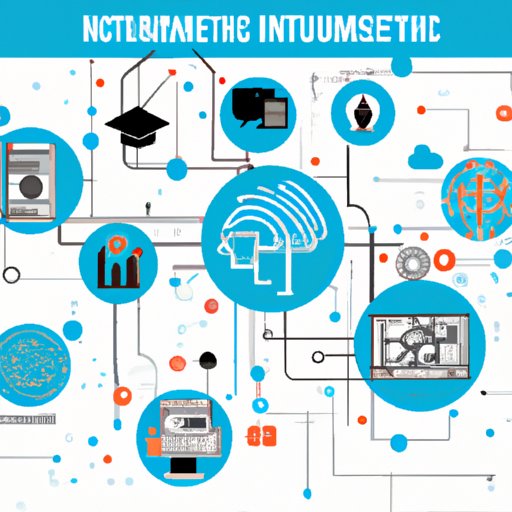Introduction
Information technology (IT) has become an integral part of modern life, impacting virtually every aspect of our day-to-day activities. But what exactly is information technology? How is it being used to transform businesses and society? In this article, we’ll explore the basics of information technology, its impact on businesses and society, and examine the benefits and challenges associated with its use.
Exploring the Basics of Information Technology
To understand the role of information technology, it’s important to first have a clear definition of the term. According to the International Data Corporation, “Information technology (IT) is the use of any computers, storage, networking and other physical devices, infrastructure and processes to create, process, store, secure and exchange all forms of electronic data.” In short, it refers to the use of technology to manage, store, and communicate information.
There are various types of information technology, including hardware, software, networks, and services. Hardware refers to the physical components of a computer system such as the monitor, processor, memory, and hard drive. Software, also known as programs or applications, refers to instructions that tell a computer what to do. Networks refer to computers connected to each other, which enable users to share information and resources. Finally, services refer to the people and organizations that provide support for IT systems.

How Information Technology is Transforming Businesses
Information technology is transforming businesses in a number of ways. Through automation, businesses can streamline their operations and increase efficiency. Automation eliminates manual tasks and reduces the need for human labor, leading to cost savings. It also allows businesses to respond quickly to customer needs, leading to improved customer satisfaction.
Information technology also enables businesses to be more flexible and mobile. With cloud computing, businesses can access data and applications from anywhere in the world, allowing them to respond quickly to changing market conditions. This flexibility also makes it easier for businesses to scale up or down as needed.
Finally, information technology can help businesses reduce costs. By automating manual tasks and reducing the need for human labor, businesses can reduce their overhead expenses. Additionally, by taking advantage of new technologies such as cloud computing and big data, businesses can gain insights that can help them make better decisions, leading to increased profitability.
The Impact of Information Technology on Society
Information technology is also having a profound effect on society. It is enabling social change by connecting people around the globe and allowing them to share ideas and collaborate on projects. It is also driving economic development by creating new jobs and opportunities. In addition, it is increasing access to information, making it easier than ever to find answers to questions and stay informed.
Trends and Developments in Information Technology
In recent years, there have been several major trends and developments in information technology. Artificial intelligence (AI) is becoming increasingly prevalent, with machines now able to perform tasks that were once thought impossible. Cloud computing is also becoming more popular, allowing businesses to store and access data and applications remotely.
Big data is another trend, with businesses leveraging large amounts of data to gain insights into their customers and operations. Finally, the Internet of Things (IoT) is rapidly expanding, connecting billions of devices around the world.

The Role of Information Technology in Education
Information technology is also having a major impact on education. It is improving learning outcomes by providing teachers with new tools and resources to engage students. It is also enhancing communication between teachers and students, allowing for more personalized instruction. Finally, it is increasing accessibility to education by making it easier to access online courses and educational materials.

The Benefits and Challenges of Information Technology
The use of information technology has both advantages and disadvantages. On the one hand, it can significantly improve efficiency, save time and money, and enable businesses to operate more flexibly. On the other hand, it can be expensive to implement, require specialized skills to use, and lead to security and privacy concerns.
Another challenge is that information technology is constantly evolving. As new technologies emerge, businesses must continually adapt to stay competitive. Finally, information technology can be complex and difficult to manage, requiring specialized knowledge and expertise.
Conclusion
In conclusion, information technology is transforming businesses and society in a variety of ways. It is increasing automation and efficiency, enabling businesses to operate more flexibly and reducing costs. It is also having a major impact on society, driving social change, economic development, and access to information. Finally, it is giving rise to new trends and developments such as artificial intelligence, cloud computing, and big data. Although it has many advantages, it also comes with some challenges, such as complexity and cost.
(Note: Is this article not meeting your expectations? Do you have knowledge or insights to share? Unlock new opportunities and expand your reach by joining our authors team. Click Registration to join us and share your expertise with our readers.)
